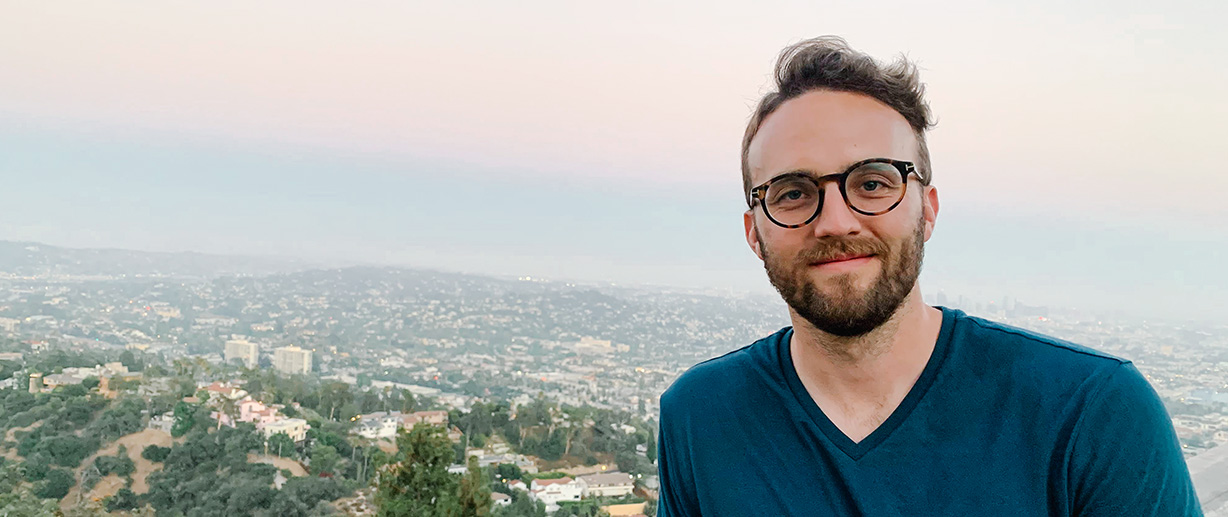By Robert W. Dalton
Directly in front of him stood four black headstones. Beyond the stones was a field where Nazis dumped the ashes of Jews, Roma, and other so-called untermenschen (“subhumans”) murdered in the Auschwitz-Birkenau concentration camp during World War II.
“It felt like sacred ground,” says Nicholson, who is pursuing a master’s of divinity and attending medical school at Duke University. “It felt like a place where people had died.”
Nicholson was in Europe for the 2022 Fellowships at Auschwitz for the Study of Professional Ethics. He was one of 14 medical students chosen for the two-week program. Journalists and seminarians also were part of the group, which numbered more than 30.
“It was a privilege to engage in conversations about the role that medical and other professionals played in making the Holocaust possible, and to have those conversations in the place where it happened,” says Nicholson. “We were approaching contemporary ethical questions through that lens.”
Nicholson says the experience gave him a deeper appreciation of the need for self-reflection.
“I have to be aware of my blind spots and step into the shoes of the people who perpetrated this,” Nicholson says. “Many were doctors who went to medical school just like me. They bought into this and thought they were doing good.”
He says he hopes to remain humble and constantly question his actions and inaction. He says he wants to constantly invite critiques from other healers and to allow himself to be corrected if necessary.
“I have the self-awareness that I can be part and parcel to evil, and I have to be incredibly careful that I don’t participate in evil,” Nicholson says. “I think this will give me more grounding in the way I hope to approach medicine and bioethics in general, as well as seek to be in solidarity with those on the margins.”
Nicholson has one more year of divinity school, followed by his last year of medical school. He currently hopes to pursue a career in a surgical discipline.
“I plan to spend three months in Sudan next spring working with missionary surgeon Tom Catena and see where that leads,” he says.
Nicholson says he wouldn’t have the opportunities in front of him without the experience he had at Wofford.
“I’m truly grateful for the investment my professors and other members of the Wofford community made in me,” he says. “They opened up my world and gave me an imagination I didn’t have before. I wouldn’t be where I am if I hadn’t gone to Wofford.”
